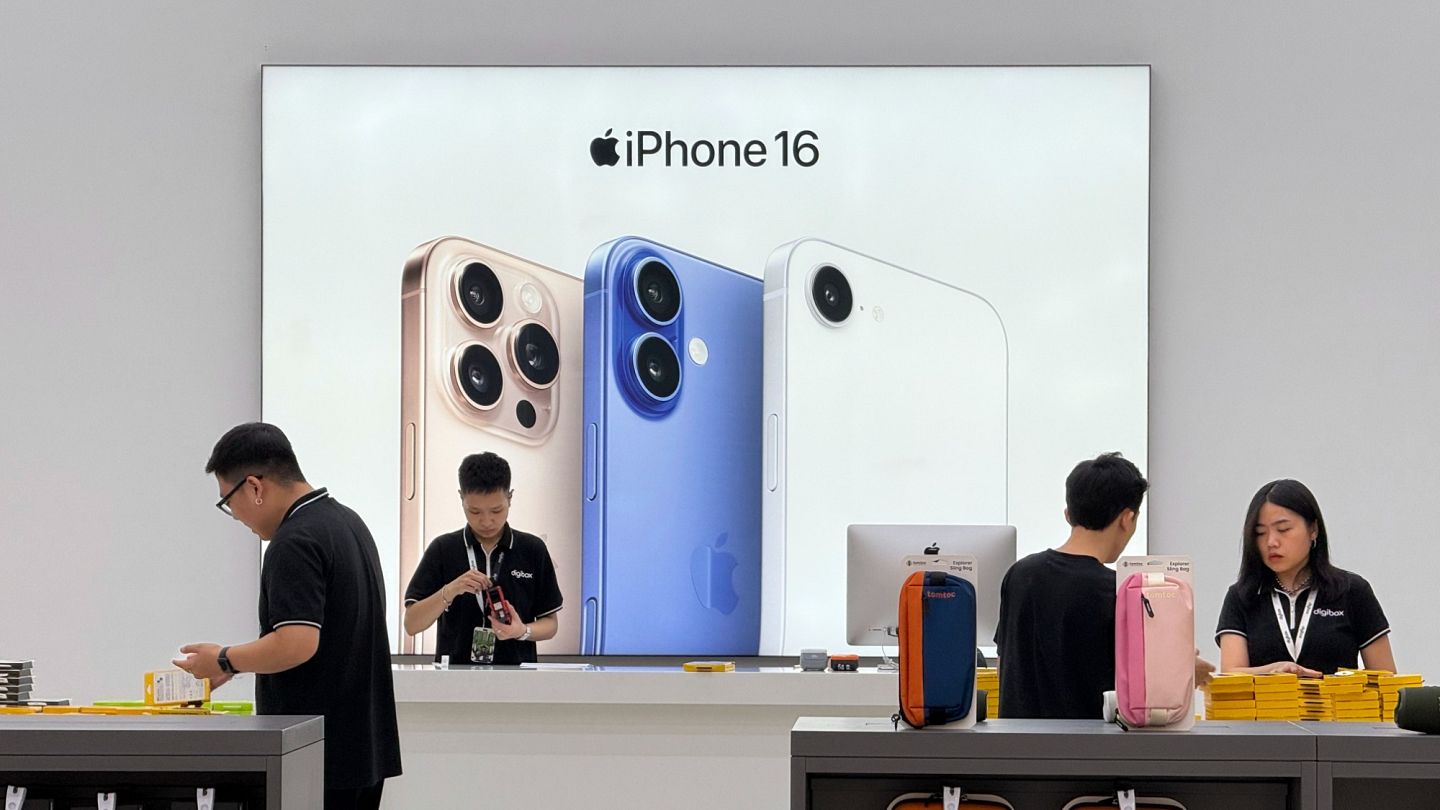Trump wants iPhones to be produced in the USA, but it is unlikely that Apple will leave China.
President Donald Trump hopes Apple will return to the U.S. to produce its flagship products. Even with tariffs in place, there are few incentives for the tech giant to leave China.
Bringing production and businesses back to the U.S. is a frequent request of the administration of President Donald Trump, who is currently engaged in a trade war with the rest of the world. The Trump administration predicted that the tariffs imposed on China would push American tech giant Apple to produce the iPhone in the U.S. for the first time. However, even though the tariffs on products manufactured in China have reached 145%—the country where Apple has produced most of its iPhones since the launch of its first model 18 years ago—this scenario seems unlikely. One of the barriers to Apple shifting its production back home is the complex supply chain it began building in China in the 1990s. Building new facilities in the U.S. will take several years and cost billions of dollars, potentially facing Apple with economic pressures that could triple the price of an iPhone, threatening the sales of its most important product. Dan Ives, an analyst at Wedbush Securities, reflecting a widely accepted view in investment circles that closely monitor Apple's every move, stated, "The concept of producing iPhones in the U.S. is not a starter." Ives predicts that the current $1,000 price tag of an iPhone produced in China or India could rise to over $3,000 if production is shifted to the U.S., and believes it is unlikely that the move will occur before 2028. Ives added, "Prices will change so dramatically that it will be hard to comprehend." Apple did not respond to a request for comments from the Associated Press (AP) on Wednesday.
Potential Price Increase on iPhones The company in Cupertino, California has not yet publicly disclosed its response to Trump’s tariffs on China. However, the topic might come up during the quarterly conference call on May 1, where Apple CEO Tim Cook will discuss the company’s financial results and strategy, as analysts may pose questions. Given that Apple’s stock price has fallen 15% since Trump began raising tariffs on April 2, and the company’s market value has decreased by $500 billion, there is no doubt that Chinese tariffs will be a hot topic. If tariffs continue, it is expected that Apple will eventually raise prices on iPhones and other popular products since the supply chain in Silicon Valley is concentrated in China, India, and other overseas markets. The main question is how long Apple will be willing to maintain its current prices before the impact of tariffs on the company’s profit margins becomes untenable, and consumers are asked to shoulder some of the burden. According to Forrester Research analyst Dipanjan Chatterjee, one of the primary reasons Apple has not changed its current iPhone prices while Chinese tariffs are in effect is that the company continues to reap significant profit margins from subscriptions and other services tied to its products. This segment generated $96 billion in revenue in Apple’s last fiscal year and was unaffected by Trump’s tariffs. Chatterjee stated, "Apple can absorb some of the cost increases from the tariffs, at least in the short term, without significant financial impact."
Soothing Trump with U.S. Investments In February, Apple attempted to soothe Trump by announcing plans to invest $500 billion and hire 20,000 people in the U.S. by 2028, but none of this was tied to producing iPhones domestically. Instead, Apple committed to funding a data center in Houston for AI-powered computer servers. When asked this week if Apple intends to produce iPhones in the U.S., White House Press Secretary Karine Levitt cited Apple’s investment commitment as proof that the company believes it can do so. Levitt said, "If Apple didn't think the U.S. could do this, they likely wouldn’t put up such a large sum." U.S. Secretary of Commerce Howard Lutnick also predicted in an April 6 appearance on CBS that tariffs would force a shift in production. Lutnick said, "The army of millions and millions of people screwing in small screws to make iPhones will come to America." However, Apple CEO Tim Cook expressed doubts during a conference he attended in China in 2017 regarding whether the U.S. labor pool has enough workers with the vocational skills required for the tedious and repetitive tasks Lutnick mentioned. Cook said, "You can have a meeting with mold engineers in the U.S., and I’m not sure we could fill the room. In China, you could fill multiple football fields." Trump also attempted to pressure Apple during his first term to move iPhone production to the U.S. but was unsuccessful. However, during the period when the Trump administration announced Apple’s commitment to invest $350 billion in the U.S., it exempted the iPhone from tariffs imposed on China. The initial tariffs on China led to a process that resulted in some of Apple’s current iPhones being produced in India and some other products in Vietnam. Cook also showed Trump the factory in Texas where Apple has been assembling some of its Mac computers since 2013. Shortly after completing the tour, Trump praised the factory opened during Barack Obama’s presidency. In a post on November 19, 2019, Trump stated, "Today, I opened a big Apple manufacturing plant that will bring high-paying jobs back to America in Texas."


